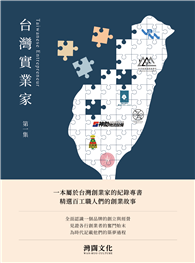Most Americans regard the postwar Occupation of Japan as a prime example of American magnanimity. They are blithely unaware of the prevailing Japanese myth that upon entering Japan, U.S. servicemen "engaged in an orgy of looting, sexual violence, and drunken brawling" and that during the first ten days of the Occupation there were 1,336 reported cases of rape in Kanagawa Prefecture alone. The myth goes further with claims that U.S. military officers demanded the Japanese government set up brothels for use by American troops and that when embarrassed officials in Washington, D.C., forced Occupation officials to close the brothels, the servicemembers went on a rampage, resulting in (according to official records) reported rapes of Japanese women skyrocketing from an average of 40 to 330 cases a day.
The truth is that none of this happened. Nevertheless, large numbers of Japanese still believe these allegations. As the passions of war have faded, the currency of such stories has only grown, and they are now regarded by many as fact. This false narrative of mass sexual violence and the organized exploitation of Japanese women by American military forces is also widely accepted among historians of World War II and its aftermath.
Brian P. Walsh, a Princeton-educated scholar, thoroughly debunks this false narrative in a brave and compelling book that reflects his in-depth research into both American and Japanese primary sources. Historian Ed Drea has praised Walsh’s work on this topic as a "masterful refutation of perceived wisdom. It is original historical research and writing at its best and is a significant contribution to the study of sexual violence in a military context and to the U.S. occupation of Japan."
| FindBook |
有 1 項符合
The Rape of Japan: The Myth of Mass Sexual Violence During the Allied Occupation的圖書 |
 |
The Rape of Japan: The Myth of Mass Sexual Violence During the Allied Occupation 作者:Walsh 出版社:US Naval Institute Press 出版日期:2024-06-15 語言:英文 規格:精裝 / 344頁 / 普通級/ 初版 |
| 圖書館借閱 |
| 國家圖書館 | 全國圖書書目資訊網 | 國立公共資訊圖書館 | 電子書服務平台 | MetaCat 跨館整合查詢 |
| 臺北市立圖書館 | 新北市立圖書館 | 基隆市公共圖書館 | 桃園市立圖書館 | 新竹縣公共圖書館 |
| 苗栗縣立圖書館 | 臺中市立圖書館 | 彰化縣公共圖書館 | 南投縣文化局 | 雲林縣公共圖書館 |
| 嘉義縣圖書館 | 臺南市立圖書館 | 高雄市立圖書館 | 屏東縣公共圖書館 | 宜蘭縣公共圖書館 |
| 花蓮縣文化局 | 臺東縣文化處 |
|
|
圖書介紹 - 資料來源:博客來 評分:
圖書名稱:The Rape of Japan: The Myth of Mass Sexual Violence During the Allied Occupation
內容簡介
作者簡介
Brian Walsh has lived, worked, and studied in Japan for sixteen years. He received a Master’s degree in Japan Studies from the University of Washington in 2003 and a Ph.D. in modern Japanese history from Princeton University in 2016. His principal areas of study are U.S.-Japanese relations in the 1940s and 1950s and the postwar development of a new Japanese national identity in the wake of its catastrophic defeat in World War II. He currently teaches Japanese history and international relations at Kwansei Gakuin University and lives in Hyogo-ken, Japan.
|











